Behind "The First Incense" is the "half-life relationship" between Xu Anhua and Zhang Ailing
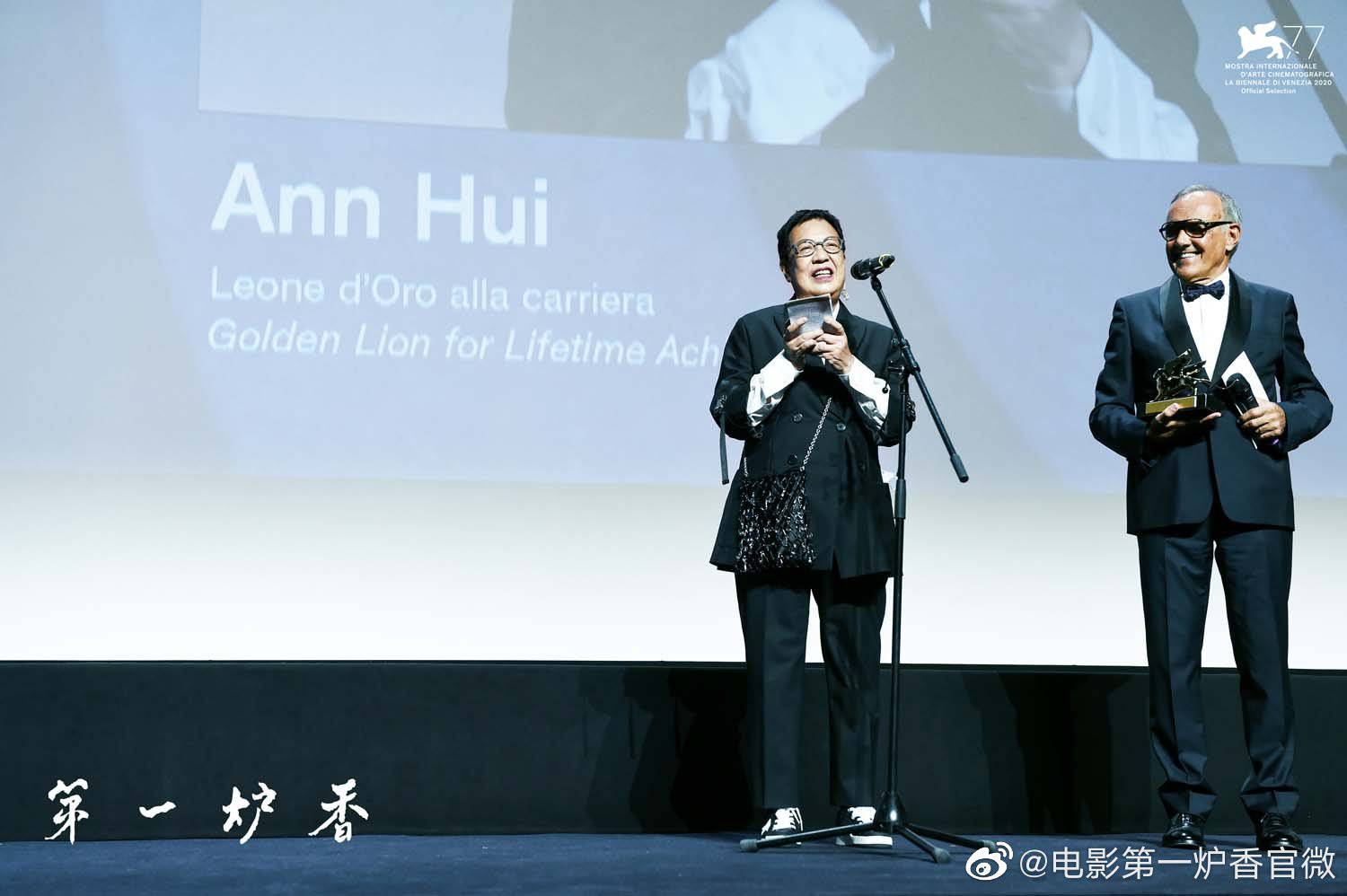
1905 movie network feature Xu Anhua, who has made about 30 films for 40 years, once said: "I reckon I am within the top 10 directors in Hong Kong, but not in the world."
At the age of 73, she has passed her old age, and the world has "recognized" her. She ushered in the trophy of the first three major film festivals and won the trophyVenice International Film FestivalThe Golden Lion’s highest award, the Lifetime Achievement Award.
At the same time, she also brought the new work to Shuicheng. After the premiere, judging from the first wave of word-of-mouth, the quality was higher than expected.We interviewed Xu Anhua in Venice for her third adaptationEileen ChangNovel, she says this love story is unlike any other.
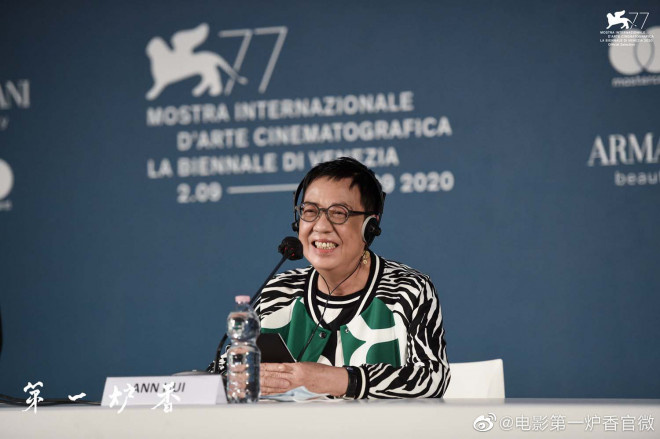
From the announcement of the film’s cast to the release of the first trailer, controversy has focused on casting.
Xu Anhua chose the sturdy Peng Yuyan to play the "bloodless, pale lips, and plaster-like" mixed-race son Georgie Qiao. Peng Yuyan revealed at a Venice media conference that he deliberately lost weight for the role, learned to speak Portuguese and learned to dance.chooseMa SichunTo play Ge Weilong, the external image and the description of the novel are appropriate, but the two do not look like the heroes and heroines in Zhang Ailing’s system.
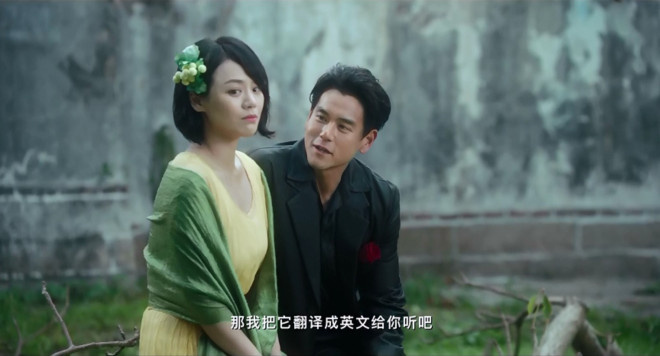
Xu Anhua said that she had her own considerations. There are not many actors and actresses suitable for this kind of romance film on the market now, and the two of them have the characteristics of playing lovers. Feng Shaofeng, for example, does not look like Xiao Jun, but he has a pair of "lover’s eyes", which is very compatible with Tang Wei, who plays Xiao Hong.
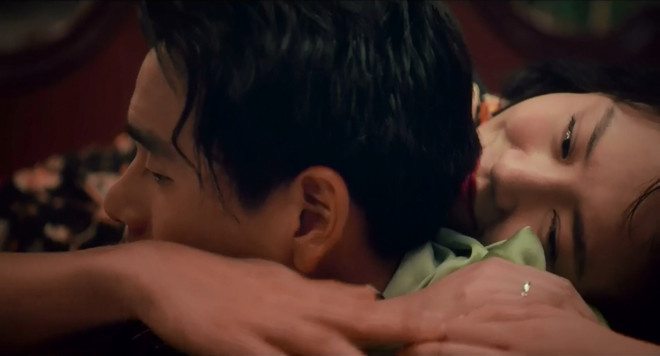
The release of "The First Incense" continued the third fate of Xu Anhua and Zhang Ailing on the big screen.Regarding this "half-life relationship", everything still has to start from more than 30 years agoStart talking.
01
"Overturning" Zhang Ailing
"Love in the City" is the first film to adapt Zhang Ailing’s novel, and it is also the first time Xu Anhua has put her idol work on the screen.At that time, Xu Anhua had just finished filmingHe was eager to continue the play and signed a contract with Shao Enterprises. He thought he could show his skills, but he encountered obstacles everywhere.
"The way I’m used to creating is family production, working together, working in teams, not like a big company, impersonal, talking about power and calculating the stakes. The change in approach makes it difficult for me to do things. I work hard, and they are completely different from the things and values I pursue."
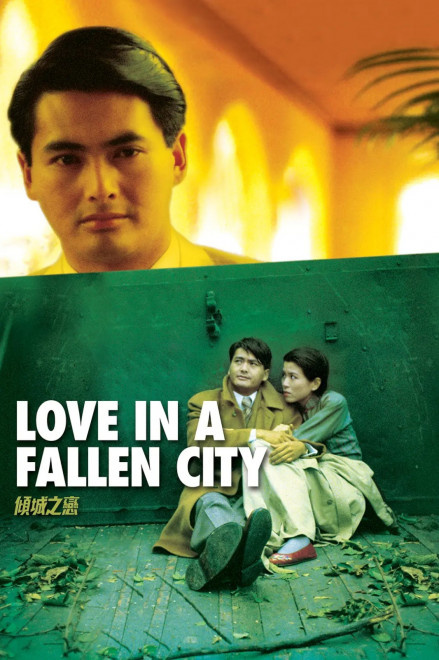
In Shao’s first year, she co-wrote the play "Evaporation from the World" with Gan Guoliang, which was the predecessor of the collaboration. The two quarreled and fell out during the collaboration.In order to leave Shao Enterprises as soon as possible and pay off the film debt, Xu Anhua decided to "Kuaishou Kuaishou quickly took a familiar novel to shoot", so there was "Love in the City".
In order to obtain the copyright, Xu Anhua contacted Song Qi, Zhang Ailing’s literary agent. Through Song Qi, Zhang Ailing replied to a handwritten Chinese letter. She agreed to authorize the adaptation and wished the film a good success.
It only took two months to write the script and prepare for it, and the male and female protagonists found Zhou Yun-fa and Miao Yu who had cooperated in it before.
The novel "Love in the City" has a touch of Hollywood neurocomedy style. A man and a woman develop feelings in the midst of spats, bickering and flirting, and finally, "the fall of a city completes their love.""The relationship between men and women in the story, I didn’t start to understand what they were talking about until I finished filming this movie," Xu Anhua said.
She used the tragic tone of "bitter hatred" to shoot a romantic love, did not know what kind of structure to connect Shanghai and Hong Kong, did not know how to use irony to write Bai ***** and Fan Liuyuan’s love relationship, had to use the usual realism and melodrama to transfer the scenes and dialogue photos in the novel to the movie.
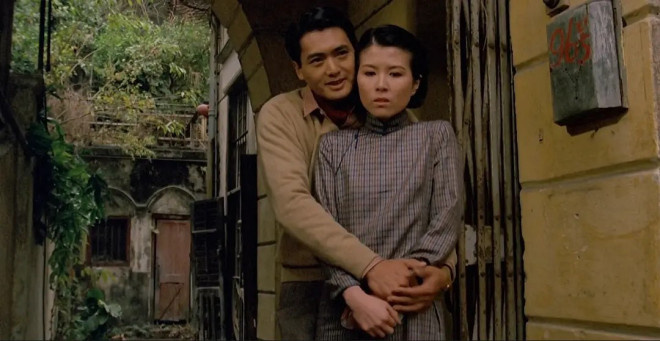
Xu Anhua felt that she did not grasp the core spirit of the novel, and at that time she did not know how to correctly convert the images in Zhang Ailing’s words into film language, and transform those delicate psychological descriptions into perceptible visual images.
The novel reads: "As soon as the tassel enters the door, he can’t help but walk straight to the window. The whole room is like a dark yellow picture frame, inlaid with a large painting in the window. The strong, beautiful sea waves splashed directly on the curtains, dyeing the edges of the curtains blue." This sentence is based on the scene, and the side of the white tassel once again faces Fan Liuyuan’s excitement and anxiety.
The movie did capture the windows in the room and the azure blue sea, but the sea in the distance was calm, the scenery was flat and rigid, and the original charm and expression intention of the novel text were greatly eclipsed.
The whole movie just seems so stretched, with nowhere to borrow or apply force.
The casting selection was also very controversial. Miao Jianren always lowered his head and looked like a muted "resentful girl", which was very different from the original image. Xu Anhua complained that the art director cut Miao Jianren’s hair short for no reason, and the actor’s styling became a big failure.Zhou Runfa has the demeanor and temperament of the prodigal son of Fan Liuyuan’s love field. Many dialogues are flirtatious words, but Zhou Runfa said it in a more serious and frivolous tone. He did not deeply understand this character, and the interpretation floated on the surface.
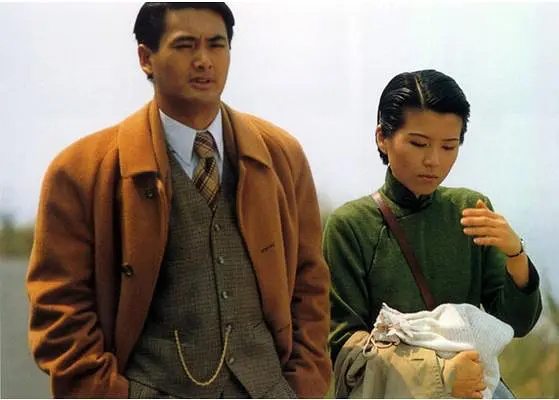
Xu Anhua regretted not adjusting the acting methods of the two leading actors. "The actors have to be excellent dramatic actors, but they are very low-key actors. The acting is very life-like, so it won’t work."
Before filming started, she and Zhou Yun-fa went to Song Qi’s house to eat spring rolls. Song Qi suggested that Zhou Yun-fa should play Fan Liuyuan with humor and make the movie look like a comedy from the 1940s. Unfortunately, Xu Anhua did not listen carefully.
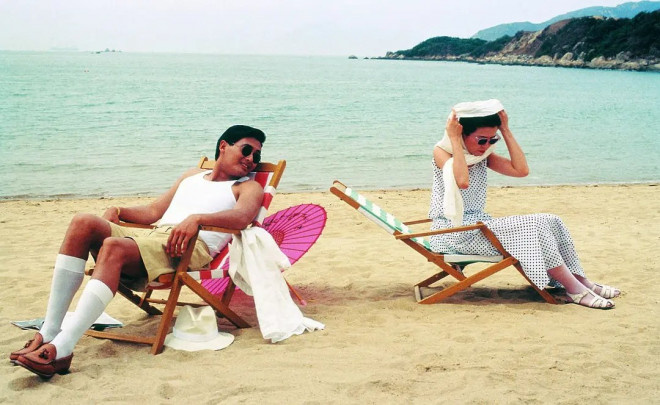
"Of course it failed!" Xu Anhua was very dissatisfied with "Love in the City". The production was rushed and there were no good ideas, including the two dancing. She knew that "I don’t know how to change the film and how to make them look good." She also reflected that the heroine might be able to get a new partner, such as Lin Qingxia or Wang Mingquan.
The first time she filmed Eileen Chang, Xu Anhua encountered "Waterloo", but she could also foresee the result. It just became more difficult to find funding for the next film, especially to adapt the Eileen Chang novel. "People would faint when they heard Eileen Chang," Xu Anhua said.
02
Don’t forget, there is an echo
At the beginning, the cooperation of "Evaporation of the World" was interrupted, and what Xu Anhua wanted to shoot most was not "Love in the City", but. Because she couldn’t go to the mainland to shoot on the spot, she couldn’t do this play without real scenes, so she had to give up for the time being.
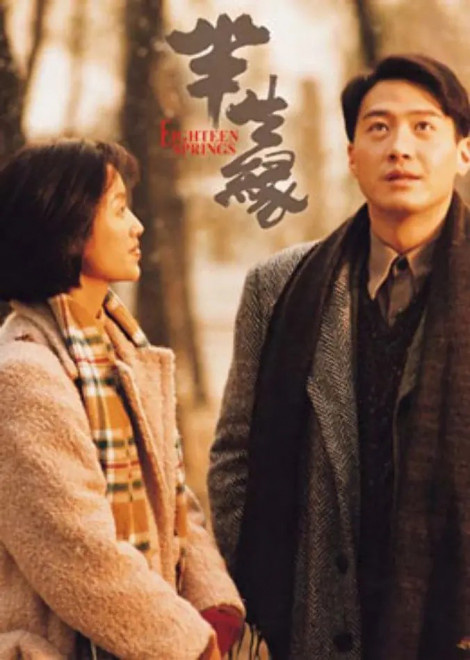
In the next ten years, due to a lack of budget, the idea of adaptation was not yet fully mature, and the movie "Half Life" could not be formed.During the period, the directorTian ZhuangzhuangHe also revealed to Xu Anhua that he wanted to make a TV series "Half Life", and she replied that if she made a TV series, there would be no need to make a movie.
I never forget, until 1996, I raised 11 million funds, everything was ready, the actors and production team were better than before, the film started smoothly, and the shooting was completed in the estimated three months, unlike "Love" in a hurry.
The novel is more than 100,000 words long and involves three groups of families, Shijun, Manzhen and Shuhui. This time, Xu Anhua knows how to cut down the complexity and simplify it. He deletes all the parts about the family elders in the novel and the life content of Manzhen after marrying Zhu Hongcai, and condenses unnecessary scenes to highlight the main line of love between Manzhen and Shijun.
"I try to tell stories while creating suspense, and at the same time make some surprises for those who have read the novel, some according to the original, some not."
The plot of the novel is rather popular. Manzhen was framed by his sister and raped by his brother-in-law. If he is not handled well, he will easily be reduced to the conventional tune of soap operas.Xu Anhua knew that adaptations should firmly grasp one point: sensationalism should also be able to stir up the emotional resonance of modern people.
Therefore, Manzhen in the movie is not as passive and sad as in the novel, and her sister Manlu and brother-in-law Zhu Hongcai are not so bad.
Xu Anhua was good at filming daily life in reality, and the content of the novel "Half Life" was also more life-like, so her strengths suddenly had room to be used.
She doesn’t photograph Shanghai in the 1930s, which was feasting and feasting, but rather the factory district and semi-suburban areas. She portrays Shanghai with a sense of urban development, where personal destiny does not match any specific city, but is wrapped in the torrent of history.
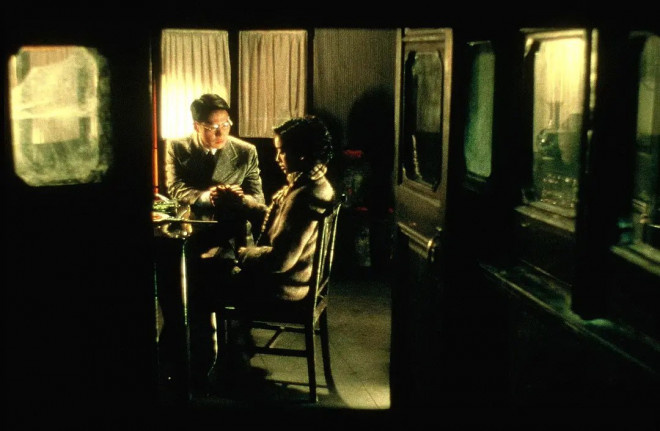
In the first half of the journey, Manzhen, Shijun, and Shuhui were familiar with each other. The love experiences of Manzhen and Shijun were all shot calmly and slowly, in detail. After the two separated, the narrative began to be drastic and the pace accelerated."The filming method of this play must be simple and clear, because the story is complicated, it must not be messed around. I can’t make it very obscure and difficult to understand."
Xu Anhua transforms the psychological activities of Shijun and Manzhen in the novel into film narration, connects the narrative structure with Shijun’s memories, and connects the true face of this love with Manzhen’s inner words.
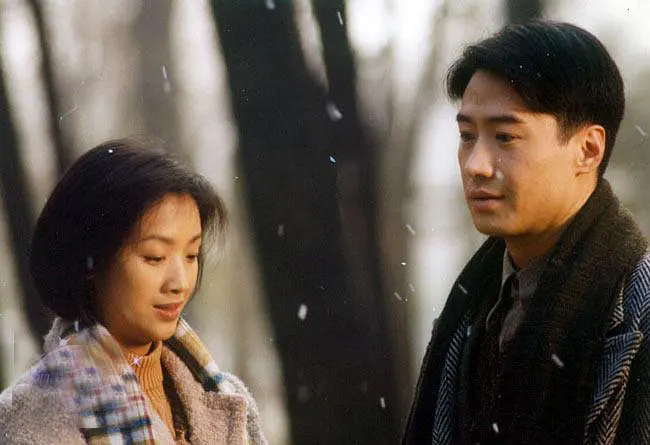
This time, the actors she chose were all in the right place.
Wu Qianlian was like a woman who came from Zhang Ailing’s novels. Dawn played the gentle Shen Shijun, which was a tailor-made. Anita Mui played Gu Manlu,GeexcellentPlaying Zhu Hongcai, the acting is not a problem, and the two characters seem "pleasing".
Xu Anhua’s design and ideas for scene scheduling are more sophisticated than in the past. Using a moving composition from the window inside and outside the window to explain the difference between Manzhen and Shijun, and a lens swinging outside the restaurant to end the silence when the two meet after a long absence, the image expresses the finishing touch.
Compared with "Love in a Alluring City", "Half-Life Fate" is much better in all aspects, and Xu Anhua is also confident that "Half-Life Fate" is a play that she can fully explain in terms of adaptation concepts.
03
Light a stove of agarwood shavings
If you want to single out the flaws of "Half a Life", it is Xu Anhua’s frequent self-criticism that the "film sense" is not strong. The film is not clear enough in art form and style, and it is not so refreshing.
Counting Xu Anhua’s representative works, "Half a Life" is difficult to rank among the top.
Xu Anhua told us in Venice that she continues to make films because she wants to make better films, and she pays more attention to the art form of film than ever before.
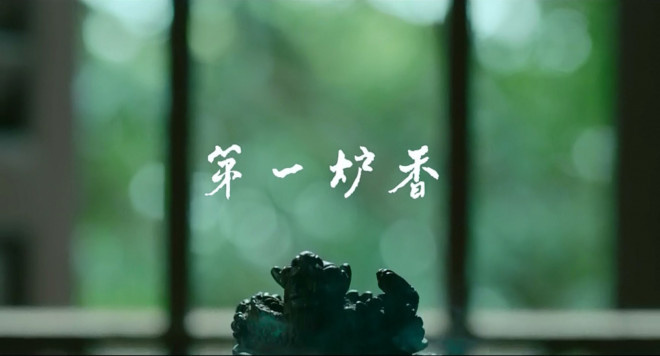
Take a look at the behind-the-scenes team of "The First Incense", the screenwriter recruited the famous writer Wang Anyi, the photographer is Du Kefeng, the costume is the Oscar-winning Hetian Emi, and the soundtrack is the famous Sakamoto Ryuichi. With such a golden lineup to support the scene, the production level has been upgraded a lot.
But when it comes to the art form, director Xu Anhua is always the backbone of the decision.
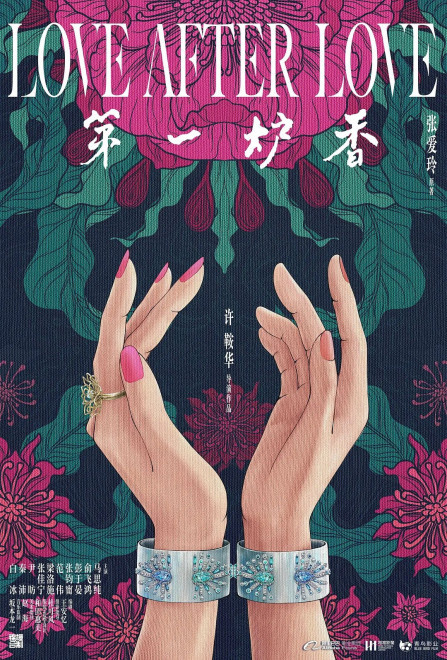
The copyright of "First Furnace Incense" can be traced back to the producer Xu Feng. Hou Xiaoxian made the film, and the original "Biography of Flowers on the Sea" was also translated by Zhang Ailing. Xu Feng invited Hou Xiaoxian to shoot "First Furnace Incense".
Hou Xiaoxian said, I’m sorry, I can’t shoot, you have to find Wang Jiawei, he is the most suitable. "Zhang Ailing’s emotions are very subtle, and there is also the atmosphere of that era in Shanghai. To be honest, it takes a lot of effort for me to shoot, just looking for actors will kill me."
In the end, the copyright passed to Blue Bird Pictures, which had helped Xu Anhua shoot "Fleeing to the Sea of Rage". For the copyright, Xu Anhua visited the Song family again. The person in charge of the novel was already Song Qi’s son Song Yilang, and his sister Song Yuanlin and Xu Anhua also had a friendship for more than 60 years.
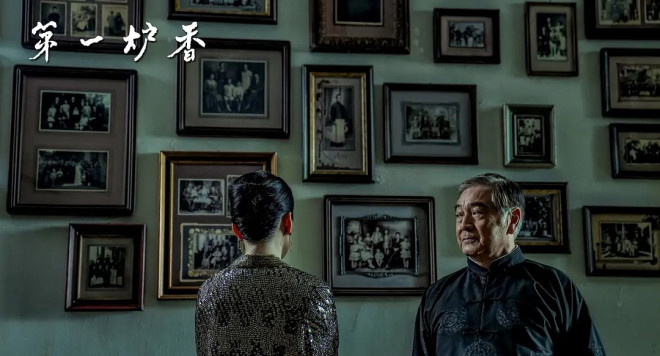
Xu Anhua took over again, and she was all too familiar with Zhang Ailing. She agreed to be a producer first, and then confirmed to be a director. Unlike Hou Hsiao-hsien, who focuses on restoring the historical nostalgia of the 1940s in the novel, she said she values this unique love story more.
In her opinion, the theme of love in "Agarwood Crumbs · First Furnace Incense" is different from that in "Love in the City" and "Half Life". Ge Weilong in the story unilaterally loves Qiao Qiqiao, and this kind of love in an extreme and inferiority complex attracts her.
In the novel, Qiao Qiqiao is suave, like a young and poor version of Fan Liuyuan. Ge Weilong is a typical female figure in Zhang Ailing’s writing – she is still happy knowing that she is in deep trouble. Aunt Liang and the maid look and stare as if they came from "A Dream of Red Mansions", which is also Zhang Ailing’s favorite work of her life.
The text of the novel is mixed and discussed, and the "sense of film" is also strong. It uses space scenes and visual images to describe emotions, such as "snake letter" spit out, "diamond bracelet three inches wide", which is constantly inked in Mrs. Liang’s garden-like residence, pointing out the gold and jade. Among them, the metaphor refers to "China here is the China in the eyes of Westerners, absurd, exquisite, and funny."
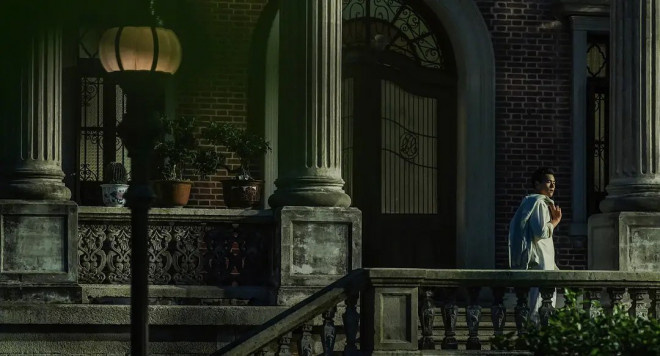
Xu Anhua has always respected the core content of Zhang Ailing’s original works. She once said: "You can only adapt Zhang Ailing’s novels, not use them as themes."
The plot of the movie "First Incense" has been partially revised, and the plot continues to write Ge Weilong’s married life after marrying Qiao Qiqiao. The novel is only a few strokes away, and the movie spends about half an hour to uncover this dirty and depraved marriage.
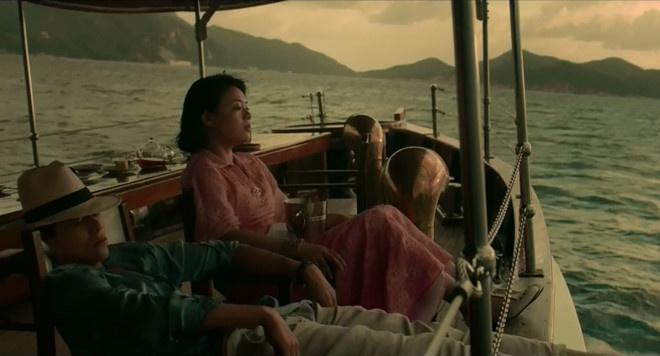
After filming "The Golden Age", Xu Anhua said that she would make more films about Hong Kong’s history in the future, and then there was the current "First Incense".Xu Anhua likes Zhang Ailing’s novels, but also because she writes about Hong Kong in her eyes. The story time of "First Incense" roughly takes place in Xu Anhua’s childhood, and she is a witness to the colonial life and history.
Adapting Eileen Chang’s novel is a difficult task, and "Zhang fans" have their own different imaginations of the novel. Xu Anhua has risen to the challenge three times. How is this story of pre-war Hong Kong told? Can the "first incense" be ignited?
Only waiting for the release, waiting to find out.
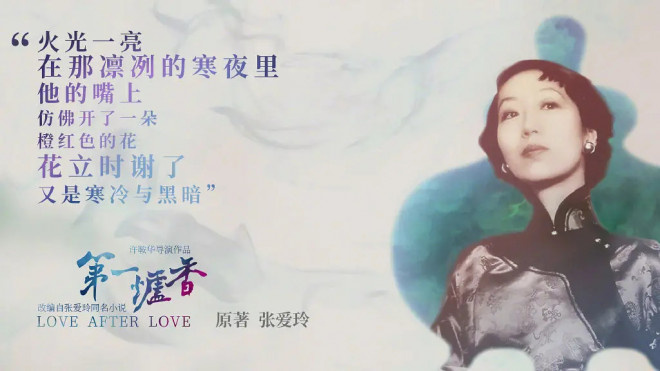
04
Interview with Xu Anhua in Venice
1. You have adapted Zhang Ailing’s "Love in the City" and "Half a Life" before, but you are not satisfied. What is the motivation for shooting "First Incense" this time?
Xu Anhua:The concept of love in this story is different from the other two. I think it’s more adventurous, more novel, more interesting, and it’s an extreme form of one-sided love.
"Alluring Love" is about how two people who have different calculations about chance fall in love, and they need to calculate whether they should be together. "Half a Life" is about how circumstances hold them back. But "First Incense" is about the man, Georgie Qiao, who was born not to love Ge Weilong. Although Ge Weilong loves him very much, she chooses to marry, betting that Georgie Qiao will get better one day, but he does not.
2. What attracted you to this film project?
Xu Anhua:I want to do what I’m interested in now, and maybe people will think I made this movie because I wanted to shoot the nostalgic high society of the 1940s, Hong Kong, or the scene of that time, but the core story is more important.
Actually, I don’t like big productions because it takes a long time, you know, to get along with the art director and actually get the set built. And if I get real, if I get what’s going on in the street, I can capture the story very quickly.
"The First Incense" required a lot of preparation, and I felt like I didn’t have much time, but in fact, for us, the film progressed very quickly.Because I usually spend a lot of time on the script side, we started discussing the script at least two years before shooting. After the script was completed after a year and a half, it took about six months to visit the venue, discuss the cost, and the official shooting time was three months. Actually, it was quite fast, and considering the movie only had two main venues, we didn’t need to run around, and there were no war scenes or big scenes.
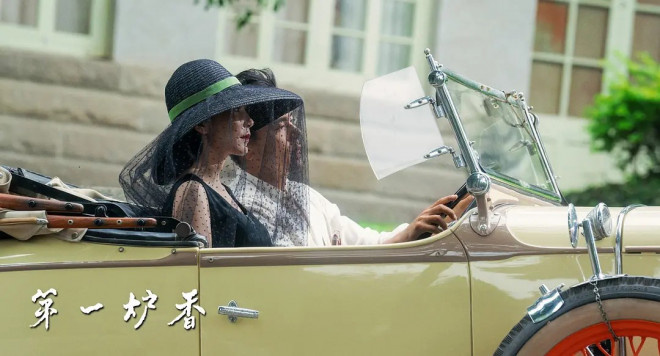
3. Why did you choose Ma Sichun and Peng Yuyan as the male and female protagonists?
Xu Anhua:Because it’s a love story, I think there are only so many actors and actresses that can film a love story together. There may be actors who are really good at acting, but they can’t do it in a love story because they don’t have the eyes.
You can imagine an actor or actress in a love scene through a certain quality of them. When you watch this movie, you will be moved. This is a special resonance, something that is not very common. When I was shooting "Golden Age", I chose Feng Shaofeng, who is not like Xiao Jun. I chose him to play this movie because I think he can play the love between the heroine and the heroine well, because he has a pair of "lover’s eyes".
4. The movie "The First Incense" also adds a lot of plot to the original novel. Why did it do this?
Xu Anhua:Now about a third of the script is new, and the added storylines and scenes are extrapolated from the novel. What will happen when Ge Weilong marries George? This part of the description is only one paragraph in the novel, but the movie takes 30 or 45 minutes to cover. Because I’m very interested in this part, it makes the conspiracy and conflict more obvious.

5. After filming "The Golden Age", you said in an interview that you would make more films about Hong Kong history in the future. After that, we saw "When Will There Be a Bright Moon". Did "First Incense" also focus on showing your thoughts on Hong Kong’s colonial history?
Xu Anhua:I was born in 1947, a couple of years after the time of the movie. And in the ’50s, I experienced colonization firsthand, and I think that was an advantage for me because I had a personal understanding of the era, so if I wasn’t making it, people were going to have to do a lot of research.
Some people would say that "The First Incense" is an allegory about colonialism, about the unbearability of colonialism, because it is like happening anywhere in the world. In high society, there are many depravity, and these depravity have to be hidden in a very colorful and beautiful and flashy appearance.
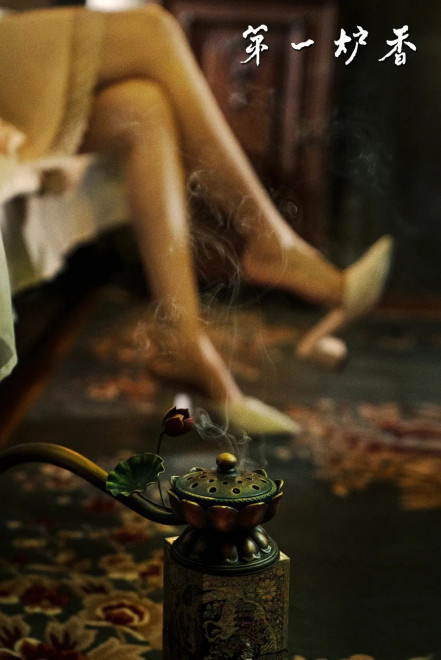
6. You still have a great passion for film. What motivates you to keep looking for new projects?
Xu Anhua:In the last few years, I’ve started to feel more confident in myself because I know more and more how to make movies, but I was frustrated because I knew my energy was dropping, I couldn’t shoot more than 10 hours a day. Making movies, especially for directors, takes a lot of energy. But at a certain age, you can’t do that anymore.
I just wish I could stick with it for a few years and try to make better movies. I now have a better grasp of the characters, actors, casting, etc., but I still have a lot of work to do in this regard of film as an art form, which I’m sorry because I’m always busy doing one thing after another, telling different stories, making different movies, and I don’t think too much about the art form of film itself.
If you want to get a pass to the Venice Film Festival, you have to do it. It’s not that I can do it, it’s just that I have to work hard. It’s not about talent, it’s about making a film in an art form that reflects the theme and integrates with it, which is completely different from just shooting.
This article also refers to "Xu Anhua said Xu Anhua".